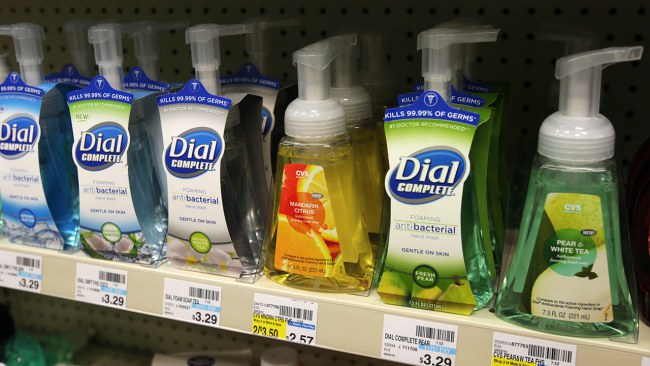-
Tips for becoming a good boxer - November 6, 2020
-
7 expert tips for making your hens night a memorable one - November 6, 2020
-
5 reasons to host your Christmas party on a cruise boat - November 6, 2020
-
What to do when you’re charged with a crime - November 6, 2020
-
Should you get one or multiple dogs? Here’s all you need to know - November 3, 2020
-
A Guide: How to Build Your Very Own Magic Mirror - February 14, 2019
-
Our Top Inspirational Baseball Stars - November 24, 2018
-
Five Tech Tools That Will Help You Turn Your Blog into a Business - November 24, 2018
-
How to Indulge on Vacation without Expanding Your Waist - November 9, 2018
-
5 Strategies for Businesses to Appeal to Today’s Increasingly Mobile-Crazed Customers - November 9, 2018
FDA bans antiseptic chemicals from soaps; no proof they work
Antibacterial data suggests that these soaps do more harm than good for the consumers who use them.
Advertisement
According to the FDA, the manufacturers of antibacterial hand and body wash “did not provide the necessary data to establish safety and effectiveness for the 19 active ingredients addressed in this final rulemaking”. The U.S. Food and Drug Administration issued its final rule (PDF) that essentially bans companies from being able to market antiseptic wash products that contain any of 19 active ingredients out of concerns long-term daily use could pose a number of health risks.
Soap manufacturers will have one year to either reformulate their soap products so that they do not include these chemicals or pull their soap products from the market completely.
The two primary ingredients being targeted by the FDA’s rule are triclosan and triclocarban.
Antibacterial soaps containing benzalkonium chloride, benzethonium chloride and chloroxylenol will remain on the market while manufacturers develop additional safety and effectiveness data for these ingredients, she said. There’s no proof the ingredient, triclosan, is risky.
The good news, for the germaphobes out there, is that plain old soap works to prevent the spread of disease.
The FDA said there is not enough proof that any of the ingredients are safe in the long-term or are effective enough to live up to the antibacterial claim. “Antibacterial soaps are critical to public health because of the importance hand hygiene plays in the prevention of infection”. The FDA has given manufacturers a year to change their products or pull them off shelves.
Despite a long and expensive lobbying campaign, the $30 billion personal care products industry was unable to prove that the widely used antibacterial cleansers were safe and effective. The FDA says some short-term animal studies have shown that exposure to high doses of triclosan is associated with a decrease in the levels of some thyroid hormones. The FDA delayed making a decision on those chemicals for one year.
Manufacturers are conducting research to fill data gaps identified by the FDA, Sansoni said.
Hand sanitizers and wipes created to be used without water and containing more than 50% alcohol are not affected by the new rules, nor are cleansers in hospitals or nursing homes, Dr. Theresa Michele of the FDA’s Division of Nonprescription Drug Products said in a Friday morning news conference.
Those antibacterial soaps that you thought were saving you from infections and sickness probably don’t really work any better than a normal scrubbing. According to NBC, it kills bacteria by breaking open the cell walls, but the process takes “several hours”.
Children wash their hands on the Global Handwashing Day in Mandaluyong City, the Philippines, Oct. 14, 2014.
Advertisement
“A small quantity of our bar soap in Puerto Rico, where FDA rules also apply, is being reformulated”, he said.





























